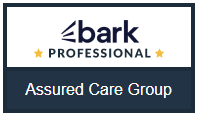You may wonder why it’s so difficult to stick to habits like being on time, taking breaks from social media, or working out regularly. Everyone who lives with ADHD knows how tough it can be to stay organized and keep everything on track.
The key is working with how your brain works. Habits stick better when they’re fun, rewarding, and tied to something you’re already doing. So, instead of forcing a one-size-fits-all plan, create resolutions that excite you and keep things fresh.
Understand Your ADHD Brain
Do you get easily distracted and unmotivated? Do you lose interest in things, people, and relationships as soon as the excitement and novelty wear off? If you have ADHD, staying organized and on top of your responsibilities can feel like an ongoing challenge. Like many with attention-deficit/hyperactivity disorder, you likely face executive function challenges, which can make prioritizing, planning, and following through feel overwhelming. Meeting everyday demands is hard enough; setting and sticking to long-term goals might seem nearly impossible.
ADHD brains thrive on novelty and instant gratification, which is why long-term goals often fizzle out. So, how do you make habits stick?
Here are some great strategies for setting ADHD-friendly goals that can really help you stay on track.
4 ADHD-Friendly Strategies for Resolutions that Last
1. Take Baby Steps
While going after big, impactful changes may seem exciting, those huge goals usually don’t work out. Start small. Instead of a big life overhaul plan, aim for one tiny, manageable goal. For example, if you want to exercise, start with a five-minute workout or a 15-minute walk daily.
2. Make it Fun
People with ADHD often have trouble finishing tasks or may skip important steps to complete them. This is due to low dopamine levels in your brain, which help keep you motivated. When a task is boring or too overwhelming, it becomes even harder to finish because there isn’t enough dopamine to drive you to complete the work. Tie your goals to something fun.
For instance, if you’re trying to exercise regularly, create a playlist of your favorite upbeat songs or listen to an engaging podcast to keep your mind entertained while you move. Treat yourself after completing a habit with a little reward—like a favorite snack, coffee, or a bubble bath. Doing your tasks in a way that is dopamine-boosting keeps your brain engaged.
3. Use Visual Reminders
For most people with ADHD, what’sout of sight is out of mind, too. Set alarms or use sticky notes where you’ll see it daily. You can even use visual cues, like leaving your workout gear by the door, to prompt action. These simple but effective strategies keep your goals in focus, making it easier to stay on track.
4. Stack Habits Together
Research shows that new habits stick longer when you pair them withexisting ones. It’s because they become part of a routine you already follow, making them easier to remember and integrate into your day. For instance, while waiting for your coffee to brew, you could do a quick stretch, practice deep breathing, or practice gratitude. By anchoring new habits to something familiar, you build consistency without even knowing it.
Conclusion
Setting New Year’s resolutions that last beyond January is quite a challenge for many people, and you’re not alone in feeling this way. If you don’t stick to every decision you’ve made, don’t beat yourself up — it doesn’t mean you’ve failed. For people with ADHD, setting goals and resolutions is not just about willpower; it’s about finding the right strategies to work with your brain, not against it.
Looking to focus on progress, celebrate your wins, and give yourself grace this year? Assured Care Group can help. We offer personalized and compassionate mental health care.To learn more about the treatment options at Assured Care Group, call 667-304-2974 or book an appointment online today.









